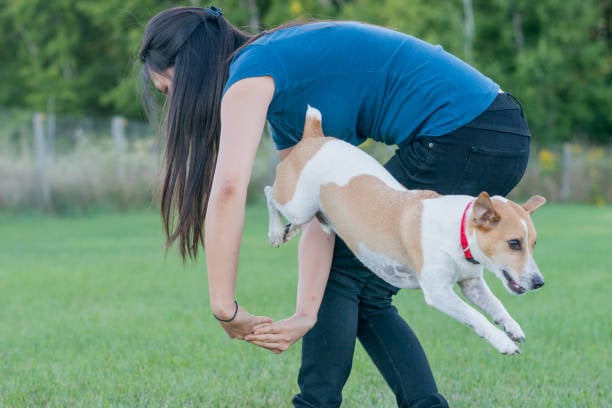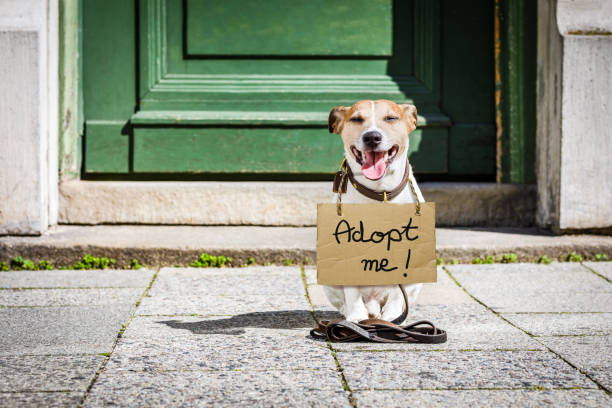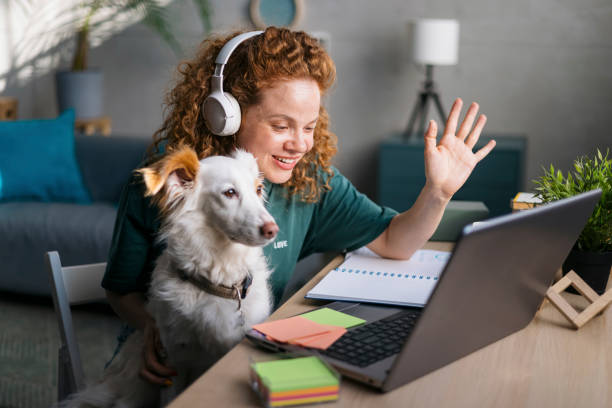As dog trainers, one of the most rewarding aspects of your job is helping a dog progress from basic obedience to more advanced skills. Training experienced dogs not only deepens their abilities and behavioral understanding but also enhances the bond they share with their parents. For dogs that have mastered basic commands, advanced training techniques can offer new challenges and stimulation. This blog post will explore several advanced training methods that can help take experienced dogs to the next level of obedience and performance.
At the beginning of any advanced dog training journey, it's crucial to understand foundational concepts, as these set the stage for success with more complex skills.
For experienced pups who’ve already mastered the basics, advanced dog training techniques introduce new challenges and mental stimulation. They provide opportunities for lifelong learning, improved behavior, and stronger relationships between pet and parent.
At Gingr, we know that professional trainers and dog-care businesses who provide advanced training need tools that help them deliver pawsitive results efficiently—while building loyalty and boosting revenue. Whether you run a training facility, daycare, or hybrid pet-care business, advanced training can be a key driver for customer engagement and repeat business.
Introduction to Advanced Training
Advanced dog training is about taking your dog’s skills to the next level, providing mental and physical stimulation that keeps them engaged and happy. These training sessions go beyond basic commands, challenging your dog to learn new skills and refine existing behaviors. By focusing on advanced training, you’re not only teaching your dog new tricks but also deepening the bond and understanding between both you and your furry companion.
Positive reinforcement is key—rewarding desired behavior with treats, praise, or play makes each session a fun and rewarding experience for your dog. Whether you aim to address aggression issues, improve overall obedience, or simply introduce exciting new tricks, advanced training techniques offer a rewarding path for continued growth. Investing in your dog’s development through advanced training ensures they stay mentally sharp, physically active, and eager to learn, making every training session enjoyable for both of you.
1. Advanced Obedience Training
Advanced obedience goes beyond the basics of sit, stay, and come. It focuses on precision, reliability, and control even in distracting environments. Advanced training enhances the dog's manners, responsiveness, and specialized abilities, helping to unlock the dog's full potential. Skills like heel, back up, stop at a distance, and place on cue give parents better control and dogs a greater sense of purpose.
Why it matters
- Improves off-leash reliability
- Enables safe behavior in public places
- Builds handler trust and communication
Technique Highlight: Distance Commands
- Start by getting the dog's attention using a treat or toy before giving any distance commands.
- Begin with strong command reliability at close range.
- Gradually increase distance using a long lead.
- Mark correct responses with a clicker or marker word.
- Use high-value treats to reinforce behaviors performed at a distance.
- Practice around distractions and in varied environments.
Advanced obedience is also a great offering to market through your dog trainer business software, with recurring training packages to drive repeat revenue.
2. Trick Training

Trick training isn't just for fun—it's a fantastic way to mentally stimulate your dog and keep training engaging. Advanced tricks might include spinning in a circle, weaving through your legs, or even tidying up toys into a box.
Technique Highlight: Incremental Learning (Shaping)
- Break the trick into tiny steps.
- Reward each successive approximation by treating your dog with a small, tasty treat as positive reinforcement.
- Gradually raise the criteria for rewards, continuing to treat your dog for each new level of progress.
- Keep sessions short and engaging to maintain motivation.
Popular advanced tricks:
- Spin in a circle
- Weave through legs
- Roll over
- Tidy toys into a box
- Target touch objects (useful for service work or agility)
Offering trick training classes through your pet business software helps attract new pet parents and gives them something fun to share on social media—building loyalty one wag at a time.
3. Agility Training

Agility is a sport that challenges both the dog and handler, enhancing skills and teamwork. Agility combines obedience, problem-solving, and physical exercise. It enhances coordination and strengthens the dog-handler relationship.
Common agility obstacles:
- Jumps
- Tunnels
- Weave poles
- Dog walks: Teach your dog to walk confidently across the dog walk obstacle as part of agility training.
- A-frames
Why agility?
- Provides great physical and mental exercise.
- Boosts a dog's confidence and focus.
- Increases engagement with the handler.
Technique Highlight: Building an Agility Course
- Introduce one or two obstacles at a time.
- Build confidence before adding complexity.
- Keep training sessions short and fun.
- Reinforce with praise, treats, and play. If your dog misses an obstacle or a treat, stay patient and encourage them to try again. Consistent practice helps your dog learn from each miss and improves their skills over time.
- Compete in amateur trials for additional motivation.
Many training facilities offer agility classes and drop-in sessions—perfect for filling off-peak times and boosting revenue through add-on services.
4. Behavioral Shaping

Behavioral shaping focuses on refining responses in specific contexts, helping dogs behave appropriately in real-life situations. It is essential to help your dog understand cues and behaviors during this process, as understanding is key to effective communication and successful training.
Common goals:
- Calm behavior around strangers
- Relaxed grooming sessions
- Polite greetings
- Settling in public spaces
Technique Highlight: Clicker Training
- Use a clicker to mark exact moments of desired behavior.
- Follow the click with a reward.
- Introduce the "3Ds": Duration, Distance, Distraction.
- Practice in varied environments to ensure reliability.
Behavioral shaping is a key differentiator for trainers who want to offer holistic programs. Your dog training software can automate class prerequisites and reminders to ensure consistent progress.
5. Scent Work and Tracking

Scent work channels a dog’s natural ability to detect and follow scents. Trainers train dogs to use their scenting abilities for various applications, teaching them to identify specific odors and follow scent trails. It provides both mental stimulation and practical skills.
Applications include:
- Recreational scent games
- Search and rescue foundations
- Nose work competitions
- Enrichment activities for senior dogs
Technique Highlight: Scent Discrimination
- Start with simple games: hide treats or toys.
- Introduce specific scents (like birch or clove oils).
- Reward successful identification and indication.
- Increase difficulty by using larger search areas and distractions.
Scent work can be marketed as a premium add-on class—perfect for boosting ticket sizes through Gingr’s online booking and payment tools.
6. Impulse Control and Emotional Regulation
For experienced pups, building emotional regulation and impulse control is just as important as teaching new skills. Recognizing and managing stress in dogs during impulse control training is essential, as keeping your dog relaxed and comfortable helps create a successful learning environment.
Focus areas:
- Calm greetings (no jumping)
- Waiting politely for food or doors
- Relaxing on a mat
- Responding to the “leave it” cue
- Handling frustration and arousal
Key Techniques
- Use positive reinforcement for calm behaviors.
- Gradually increase impulse control challenges.
- Provide outlets for appropriate energy release.
- Practice regular relaxation training.
Impulse control work strengthens the human-canine bond and helps create dogs that are welcome in more public and home settings.
7. Cooperative Care
Cooperative care teaches dogs to willingly participate in grooming, handling, and veterinary care.
Skills include:
- Chin rest for examination
- Nail trims on cue
- Brushing and grooming tolerance
- Injection or medication training
- Muzzle conditioning
- Teaching the dog to give their paw on cue or to tolerate handling of their paws during grooming or veterinary care
Technique Highlight: Consent-Based Training
- Teach a start button behavior (like chin rest).
- Only proceed when the dog offers the behavior.
- Reward heavily for participation.
- Take breaks as needed to maintain trust.
Promoting cooperative care classes or workshops through your dog trainer business software adds value for pet parents—and helps build lasting customer loyalty.

Training for Real-World Scenarios
One of the most valuable aspects of advanced dog training is preparing your dog to respond reliably in real-world situations. This means practicing commands and behaviors in a variety of environments—like busy parks, bustling streets, or around other dogs—so your dog learns to focus and obey even with distractions. Start by practicing basic obedience commands such as “sit” and “stay” in new locations, gradually increasing the level of distraction and distance as your dog’s skills improve.
Incorporating advanced training techniques, such as agility exercises or scent work, can provide additional mental stimulation and help your dog generalize their training to different settings. Reward your dog with treats and praise for responding correctly, reinforcing their confidence and making each practice session a positive experience. By teaching your dog to respond to commands in real-world scenarios, you’re setting them up for success in everyday life and ensuring their behavior is reliable wherever you go.
Equipment and Tools for Mental and Physical Stimulation
Having the right equipment and tools can make a big difference in your advanced dog training journey. A clicker is a popular tool for marking desired behavior, making it easy to communicate with your dog and reward them with treats at the perfect moment. Leashes and harnesses are essential for safe walking and control during training, while toys can be used for games like fetch or as rewards during agility exercises.
When selecting equipment, consider your dog’s breed, size, and skill level to ensure everything is comfortable and appropriate for their needs. Durable, well-fitting gear helps keep training sessions safe and enjoyable. If you’re unsure about which tools are best for your dog, consult with a professional trainer or pet care expert for personalized recommendations. The right tools not only support your dog’s learning but also make training more effective and rewarding for both of you.
Overcoming Common Challenges
Every dog training journey comes with its own set of challenges, but with patience and the right techniques, you can help your dog overcome them. For example, if your dog struggles with excessive barking, use positive reinforcement to reward calm behavior and redirect their attention. If aggression issues arise, focus on teaching basic obedience commands like “sit” and “stay,” and gradually introduce your dog to new environments and social situations.
Consistency is key—practice commands regularly, reward desired behaviors with treats and praise, and always approach training with patience. If you encounter persistent challenges or feel unsure about how to proceed, don’t hesitate to seek guidance from a professional trainer. With the right support and a commitment to positive reinforcement, you can help your dog develop the skills and confidence needed to thrive in any situation.
Building Loyalty Through Advanced Training
Offering advanced training is more than just an upsell. It helps build customers for life:
- Pet parents see value in continued education and enrichment
- Classes and memberships drive predictable recurring revenue
- Advanced training differentiates your business from the competition
- Pet parents become brand advocates when they see their pups thriving
By offering first class training programs that prioritize the well-being and safety of pets, you set your business apart and ensure a premium experience for every participant.
With features like Gingr’s easy online booking, memberships and loyalty rewards, and report cards for sharing progress updates, your training programs can help you foster lasting relationships with your community.
Tips for Success
- Tailor techniques to each dog’s learning style and pace, including age-appropriate methods for puppies to support early socialization and foundational skills.
- Offer personalized, one-on-one sessions with just you and the dog to provide customized attention and address specific behavioral concerns.
- Stay consistent, patient, and positive in every session.
- Communicate with pet parents regularly (Gingr helps with this!).
- Keep sessions engaging and enjoyable for both dogs and their companions
- Use your pet business software to streamline class management, automate reminders, and offer memberships.
Additional Resources
If you’re eager to continue your dog’s training journey, there are plenty of resources available to support you. Online courses, group classes, and hands-on workshops can help you refine your techniques and tackle specific challenges, from potty training and basic obedience to advanced tricks and dog sports. Pet care experts, professional trainers, and veterinarians are valuable sources of advice, offering guidance tailored to your dog’s unique needs.
Whether you’re working on advanced tricks, participating in dog sports, or simply looking to make training a fun and rewarding experience for your fur baby, investing in ongoing education pays off. By exploring new skills and training opportunities, you’ll strengthen your bond with your dog and enjoy the many rewards that come with a well-trained, happy companion.
Advanced Training for Pet-Care Success
Advanced training enriches dogs’ lives, strengthens their relationships with humans, and offers great opportunities to grow your business. Whether you’re adding trick training to your group classes, offering agility workshops, or developing a full behavioral shaping program, advanced training can help you stand out—and keep tails wagging.
Incorporating socialization and teaching physical cues such as push commands are also essential components of advanced training, helping dogs learn to interact appropriately and respond to hands-on guidance.
And remember: Running a successful training program is easier with the right tools. Gingr’s pet business software is made by pet lovers, for pet lovers, helping you spend more time doing what you love and less time on busywork.
Advanced training is not just about teaching dogs new commands but also about enriching their lives and strengthening the partnership they have with their handlers. Each dog is unique, so it’s important to tailor your techniques to fit their learning style and pace.
The key to successful advanced training is consistency, patience, and positivity, ensuring each session is as rewarding and enjoyable as possible. Whether you’re a professional trainer or a dedicated dog parent, these techniques can help you provide your canine companion with stimulating and fulfilling training experiences.
Grow your pet-care business with Gingr. Schedule a demo now!
Subscribe to the Gingr Blog







